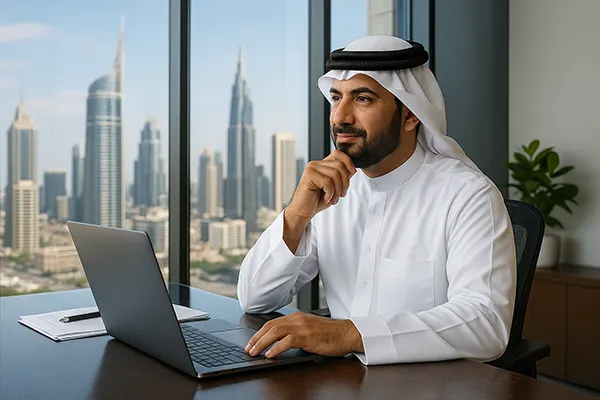In recent years, an increasing number of European football giants have come under the ownership of investors from the Middle East. This trend has raised questions not only about sports economics but also about geopolitical motives. Why are sovereign wealth funds and private investors from countries like Qatar, the UAE, and Saudi Arabia acquiring prominent football clubs in Europe? Let’s explore the deeper reasoning behind these strategic moves, grounded in real data and political context as of June 2025.
The Political Motives Behind Football Investments
One of the main reasons Middle Eastern states invest in European clubs is to strengthen their international image. Countries such as Qatar and the UAE have pursued soft power strategies for years, and owning globally recognised football clubs fits perfectly into this plan. These investments provide opportunities to reshape global perceptions, shifting attention from human rights issues to sport and culture.
Qatar’s ownership of Paris Saint-Germain and its successful hosting of the 2022 World Cup are prime examples of this approach. These moves helped project a modern, forward-looking image of the country. Similarly, the UAE’s involvement in Manchester City through City Football Group has helped promote Abu Dhabi as a hub of business and innovation.
Saudi Arabia has also joined this trend more aggressively since 2021. Through the Public Investment Fund (PIF), it acquired Newcastle United and plans to increase its international presence via additional investments. These efforts support Crown Prince Mohammed bin Salman’s Vision 2030, which aims to diversify the economy and reduce dependence on oil exports.
Sportswashing and Geopolitical Strategy
Critics often refer to these investments as “sportswashing” — using sport to improve reputations tarnished by controversies. This term has become increasingly relevant as human rights organisations question the motivations behind such acquisitions. By aligning with prestigious sports institutions, Middle Eastern states aim to enhance their global standing and deflect criticism.
Furthermore, football clubs serve as informal diplomatic tools. Ownership allows these states to build closer ties with European governments and business elites. It opens the door to political dialogue, trade agreements, and international partnerships that might not have been possible through traditional diplomacy alone.
As of mid-2025, these relationships are more visible than ever. Saudi Arabia has hosted multiple international football tournaments, while Qatar continues to engage in global cultural and sporting events. The football strategy is just one layer of a wider foreign policy that blends investment, branding, and soft power diplomacy.
Economic Rationales and Global Investment Strategy
From an economic perspective, football clubs are attractive assets. Despite volatility, top-tier clubs generate global revenues through broadcasting rights, sponsorship deals, merchandising, and ticket sales. Investors from the Middle East see these clubs not only as prestige assets but also as potential long-term revenue sources.
The growth of global football viewership offers enormous commercial potential. European leagues command the attention of billions, and clubs with worldwide fanbases can be monetised effectively. This explains why investment groups backed by oil-rich nations continue to pour billions into clubs in England, France, Spain, and Italy.
Importantly, these purchases are often executed through sovereign wealth funds, such as the Qatar Investment Authority or Saudi Arabia’s PIF. These funds manage national oil wealth and are tasked with diversifying assets internationally. Football fits into their wider strategy of securing global economic influence and stability for the post-oil future.
Return on Investment and Global Brand Power
Owning a successful football club brings tangible financial returns, especially if the club competes in the Champions League or consistently ranks high in national competitions. Increased visibility and brand equity translate into rising revenues across multiple markets.
Moreover, owning a club with a global fanbase provides unmatched advertising potential. Sponsors from the Middle East benefit from brand exposure across continents. For example, Emirates and Etihad Airways use shirt sponsorships to expand their global customer base, leveraging football’s emotional impact on fans worldwide.
In this way, the clubs become extensions of national branding strategies. Every match, every press conference, and every social media post becomes a moment to influence international audiences and shape how a country is viewed abroad.

Implications for European Football and Its Identity
While Middle Eastern investments bring financial stability to some clubs, they also raise concerns about the future of European football culture. Critics argue that ownership by foreign states undermines the identity of traditional clubs, replacing local values with commercial imperatives.
Fans of clubs like Manchester City and Newcastle United have expressed mixed feelings. While they welcome success and financial growth, many are uneasy about the political baggage that comes with their new owners. This creates ongoing tensions between tradition and globalisation.
Moreover, these investments affect the competitive balance in European leagues. Clubs owned by state-backed investors often have more resources than their rivals, leading to dominance that distorts the sporting landscape. UEFA and national federations continue to face pressure to regulate such financial power.
Regulatory Responses and Ethical Debates
Football governing bodies have started to address these issues. UEFA’s Financial Fair Play rules aim to prevent clubs from spending beyond their means, but enforcement remains inconsistent. In 2024, new regulations were introduced to enhance transparency around ownership structures and prevent conflicts of interest.
Ethical debates also dominate the media landscape. Fans and pundits increasingly question whether football should allow clubs to become instruments of state diplomacy. Discussions around ethical sponsorship, political interference, and transparency in financial dealings are now regular topics in football journalism.
As of June 2025, no uniform global standard exists, but pressure is growing. Supporters demand that football remains rooted in community values, even as it becomes entangled in international politics. The future of the game may depend on how these tensions are managed by regulators, owners, and fans alike.
